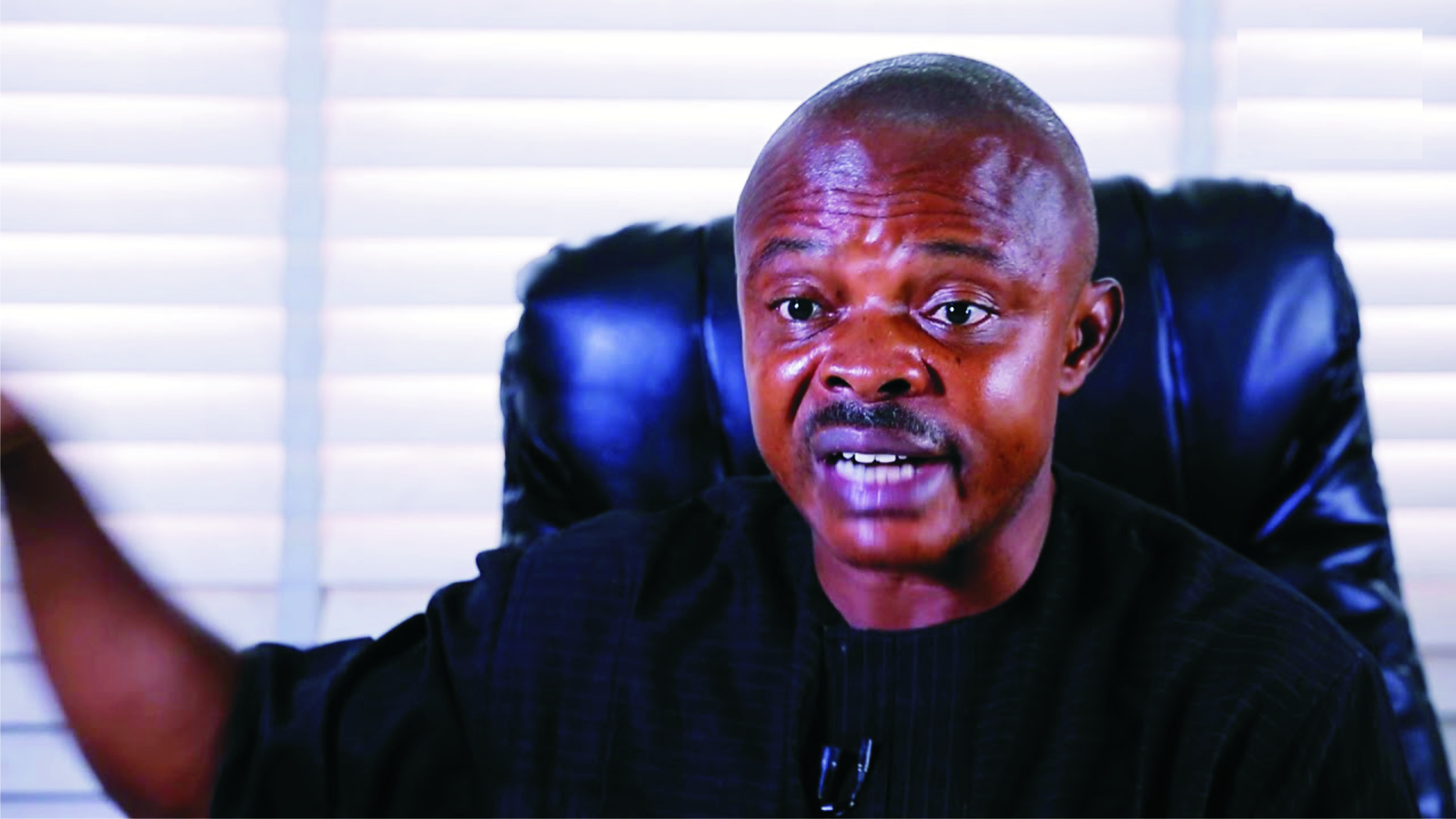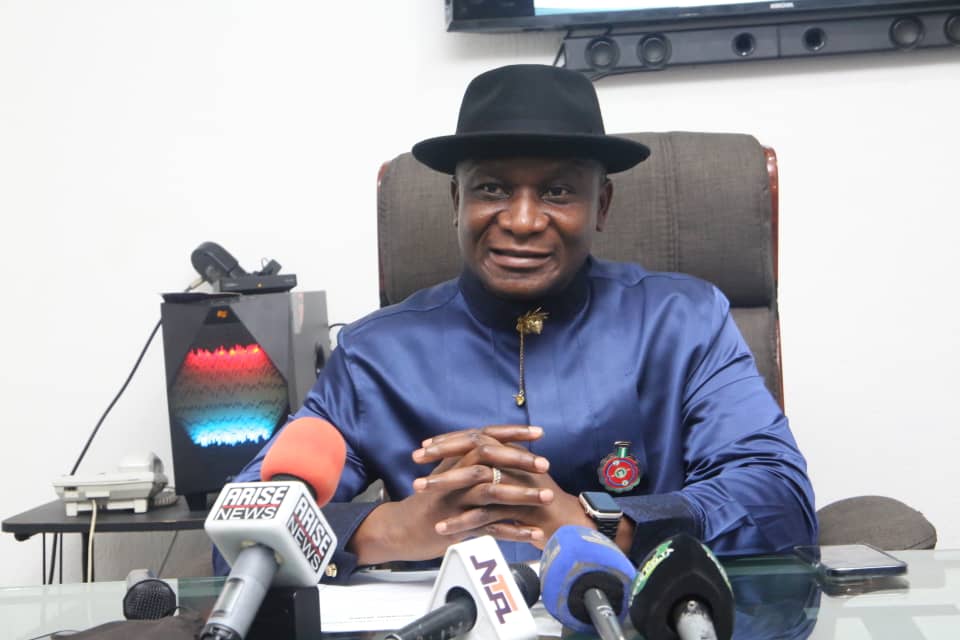News
Food Import Bill Drops From $3.40bn To $0.56bn
Federal Government has said that as a result of its interventions in agriculture, the food import bill has dropped from $3.40billion in 2014 to $0.56billion, representing a drop of over 80 per cent over a period.
Speaking at a one-day Stakeholders’ Sensitisation Workshop on the National Agricultural Sample Census, in Abuja, the Governor of Central Bank of Nigeria (CBN), Dr Godwin Emefiele, said that such interventions include, the Anchor Borrower’s Programme (ABP), Commercial Agriculture Credit Scheme (CACS), Accelerated Agriculture Development Scheme (AADS), Private Sector-led Accelerated Agricultural Development Scheme (P-AADS), Maize Aggregation Scheme (MAS), Paddy Aggregation Scheme (PAS) and the Rice Distribution Facility (RDF).
According to him, the bank’s flagship programme in the agricultural sector, the Anchor Borrower’s Programme (ABP) has become a game-changer for financing smallholder farmers, who are at the forefront of the Federal Government’s drive for food security and self-sufficiency.
“As you are all aware, the programme was designed to serve as an economic link between the smallholder farmers and anchors (agro-processors and manufacturers) who provide quality inputs and training in best farming practices to ensure high yield,” he said.
Emefiele, who was represented by Dr Olabinto Adebowale, also noted that ABP has supported about four million smallholders cultivating over 4.9million hectares of 21 agricultural commodities across the country.
“The positive impact of ABP on the agrarian communities is evident for all to see. The programme has led to a significant increase in the incomes of small-holder farmers in these communities and brought hope to the farming population through the timely delivery of agricultural inputs and linkage to guaranteed offtake market-determined prices”, he said.
In her opening remarks, the Minister of Finance Budget and National Planning, Mrs Zainab Shamsuna Ahmed, revealed that the agricultural sector is one of the most important sectors in Nigeria, representing approximately 24per cent of the Nigerian economy and engaging well over 50per cent of the workforce, both directly and indirectly.
“The sector is not only vital for economic output and employment purposes, but more importantly, it is an essential part of the societal culture. The importance of this sector, more than ever before, has been demonstrated by the administration of President Muhammadu Buhari, through the heavy investments channelled into it since 2015. The aim of these investments is to increase output in the entire value chain to meet the nation’s demand for food, employment, and export earnings.
“It is as a result of government’s heavy investment and attention to this sector that during the recession brought in by the COVID-19 pandemic, and the security challenges being encountered in some parts of the country, the sector consistently recorded positive Gross Domestic Products (GDP) numbers”, she explained.
Similarly, the Statistician General, National Bureau of Statistics (NBS), Dr Simon Harry, said that the National Agricultural Sample Census (NASC) was designed to produce vital primary data on the structural composition and operations of the sector.
“On completion of the census, the results will also form a statistical framework for the conduct of subsequent agricultural surveys in Nigeria, capturing all aspects, including crop production, livestock, poultry, fishery and forestry,” he said.
News
May Day: Labour Seeks Inclusiveness In Policy-making

The Organised Labour yesterday, called on the Federal Government to ensure inclusiveness in policy making and guide against erosion of rights, such as free speech and association.
The President, Nigeria Labour Congress (NLC), Mr Joe Ajaero made the call at the 2025 Workers’ Day celebration held at the Eagle’s Square, Abuja.
The Tide source reports Ajaero and the President, Trade Union Congress, Mr Festus Osifo delivered a joint statement on behalf of the organised labour at the event.
Ajaero described May Day as, not only a moment to honour workers’ sacrifices, but also a platform to demand justice and accountability from those in public office.
He frowned at the alleged suppression of protests, and the erosion of rights of workers by some agents
According to him, workers have a duty to resist economic injustice, insecurity, and policies that undermine their dignity.
Speaking on the theme of the day, the NLC President underscored the need for Nigerian workers to reclaim the civic space and resist policies that contribute to worsening economic conditions.
“Our theme this year – “Reclaiming the Civic Space in the midst of Economic Hardship – reflects the urgent need for citizens to protect democracy and push back against repression.
“The civic space, where Nigerians express their concerns and challenge injustices is shrinking.
“If we fail to reclaim this space, the foundation of our democracy risks collapse,” he said
Ajaero, therefore, urged workers to unite and resist division, fear, and despair.
He also urged them to mobilise and organise for change, declaring that the right to demand better conditions is non-negotiable.
“Without workers, there is no society; without labour, there is no development. We must take our place in the fight for economic justice and democratic governance.”
Speaking in the same veins, Osifo said workers are the backbone of the nation—the educators, healthcare providers, builders, farmers, and innovators who sustain its economy -.
He stressed the need for the labour to reclaim the civic space even in the midst of economic hardship.
News
2025 UTME: JAMB Disowns Site Requesting Payment From Candidates

The Joint Admissions and Matriculation Board (JAMB) has disassociated itself from a fraudulent site requesting payments from candidates who missed the ongoing 2025 Unified Tertiary Matriculation Examination (UTME).
The board said that the site, “Copyrightwriter Personal J Rescheduling Flw” and account number 8520641017 at Sterling Bank, associated with it, are scam.
The disclaimer is contained in a statement made available to newsmen in Abuja on Thursday by the Board’s Public Communication Advisor, Dr Fabian Benjamin.
Benjamin said the account is being exploited to defraud unsuspecting candidates who missed their UTME.
“We issue this urgent notice to inform the public about this nefarious scheme targeting candidates who were unable to participate in the UTME.
“Some unscrupulous individuals are deceitfully soliciting payments of N15,700 under the false pretence of offering rescheduling services for the examination.
“Let us be unequivocal: this, it is a blatant scam, and we are confident that the public will not fall prey to such cheap and regressive tactics.
” The individuals behind this scam have no affiliation with JAMB or any legitimate government agency.
“The account details provided in these communications are entirely fictitious and bear no connection to any official processes; they exist solely for the purpose of perpetrating fraud,” he said.
Benjamin called on Sterling bank to take immediate and decisive action against this criminal activity.
According to him, JAMB has reported the matter to the relevant security agencies and actively pursuing those responsible for this deceitful act.
He further said that “JAMB does not reschedule examinations for candidates who miss their scheduled tests due to reasons unrelated to the Board’s actions”.
He, however, said that the Board is conducting a thorough investigation for candidates whose biometrics failed during verification and were thus unable to sit for the examination.
He said those without discrepancies would be invited to retake the examination at no cost , stressing that “no cost is required”
“It is imperative to understand that JAMB does not charge any fees for examinations after a candidate has completed their registration.
“We strongly urge all candidates to remain vigilant and not to succumb to these fraudulent schemes.
“Protect yourselves and report any suspicious activity immediately,” he explained.
News
NDDC Seeks UN’s Support To Accelerate Niger Delta Development

The Niger Delta Development Commission (NDDC) has expressed its willingness to partner with the United Nations (UN) to accelerate the development of the Niger Delta region.
Dr Samual Ogbuku, Managing Director of the NDDC, made the appeal in a statement issued by the commission’s Director of Corporate Affairs, Mrs Seledi Thompson-Wakama, in Port Harcourt on yesterday.
According to the statement, Ogbuku sought the UN’s support during his visit to the UN Resident and Humanitarian Coordinator (UNRHC), Mr Mohammed Fall, at the UN regional office in Abuja.
He called on the global body to provide the NDDC with technical assistance and expert services to support the region’s development.
“We are eager to collaborate with the UN, recognising that the state governments in the region and the NDDC alone cannot achieve the level of regional development required,” he said.
Ogbuku identified key areas where support would be needed, including the provision of portable and affordable drinking water powered by high-tech solar energy sources.
He also highlighted the importance of reforesting the mangrove swamps, which have been severely damaged by decades of environmental degradation caused by oil exploration in the Niger Delta.
“Although the NDDC has made progress in providing solar-powered streetlights across the region, we still require UN support in delivering solar energy solutions for residential buildings.
“We also wish to explore the possibility of installing solar mini-grids in homes across communities, which would boost local commerce and trade,” he added.
The NDDC managing director further appealed for increased UN involvement in areas such as healthcare, education, youth training, gender development, and food security.
Ogunku stated that such interventions would significantly enhance the standard of living in the region.
In response, Fall affirmed the UN’s readiness to collaborate with the NDDC to fast track development in the Niger Delta.
He assured that the UN would support initiatives in food security, job creation, education, and renewable energy, among other areas.
“We aim to approach development in the Niger Delta holistically, rather than focusing solely on environmental pollution.
“This is merely an entry point; however, the UN’s development vision aligns with the Sustainable Development Goals (SDGs), which are designed to positively impact various aspects of people’s lives,” Fall stated.
He assured the NDDC of continued and fruitful engagements to drive the region’s development.

